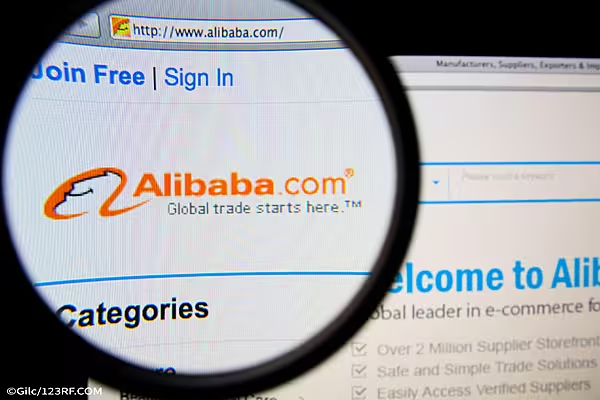Supermarket management is changing as cutting-edge technologies redefine efficiency, customer engagement and supply chain optimisation.
These advancements are enhancing operational capabilities and providing actionable insights into customer behaviour. Explore these 12 technologies shaping the future of supermarket management.
1. Cashierless Checkout Systems
The rise of cashierless stores such as Amazon Fresh demonstrates the potential of 'Just Walk Out' technology. This system uses computer vision, deep learning algorithms and sensor fusion to charge customers as they exit the store.
Retailers adopting similar technologies benefit from reduced labour costs and quicker checkout processes, significantly improving the shopping experience while offering seamless integration with loyalty programmes.
2. Robotic Process Automation (RPA)
RPA is pivotal in automating repetitive tasks like shelf scanning and price adjustments. Robots with artificial intelligence (AI) and Internet of Things (IoT) sensors can autonomously monitor shelf inventory, ensuring product availability and correct pricing.
Companies have leveraged these technologies to create more efficient, data-driven store operations, freeing staff to focus on customer service.
3. AI-Powered Inventory Management
AI is streamlining inventory processes through predictive analytics. By analysing historical sales data, algorithms can anticipate demand fluctuations, reducing overstock and waste.
By integrating AI into their supply chain, groceries enable real-time stock monitoring and optimised restocking processes. This approach minimises out-of-stock occurrences, enhancing customer satisfaction while boosting profitability.
4. Personalised Promotions With Big Data
Big data analytics is transforming the way supermarkets engage with shoppers.
Two-way QR codes, for instance, allow retailers to collect user behaviour data and deliver personalised offers in real time.
These codes give retailers valuable insights into purchasing habits, enabling tailored marketing strategies.
5. Smart Shelving And Dynamic Pricing
Smart shelving integrates IoT sensors to monitor stock levels and communicate with central systems for automated replenishment.
They enable dynamic pricing, so retailers can adjust prices in real time based on demand, expiration dates and competitor offers. This innovation optimises shelf space and enhances profitability.
6. Augmented Reality (AR) Shopping Experiences
AR technology is enhancing in-store experiences by providing interactive product information and navigation.
For example, AR apps can guide customers to specific items on their shopping lists or offer virtual previews, driving engagement and boosting sales.
7. Energy-Efficient Smart Stores
Sustainability is at the forefront of supermarket innovations. Energy-efficient systems powered by IoT devices optimise heating, cooling and lighting to reduce power consumption.
Smart supermarkets use sensors to monitor usage and dynamically adjust it based on foot traffic, reducing operational costs and carbon footprints.
8. Electrical Transformers For Power Management
Electrical transformers play a crucial role in energy efficiency by stepping up or stepping down voltage, ensuring safe and effective distribution.
They are essential in minimising loss during power transmission, especially over long distances, thus improving overall system efficiency.
In supermarkets, electrical transformers help power complex systems like refrigeration, lighting and HVAC, which are crucial for maintaining optimal in-store conditions.
Efficiently managing electrical loads allows these transformers to contribute to a supermarket's sustainability efforts, enabling operations to be more efficient while reducing overhead spending.
9. Predictive Maintenance With IoT Sensors
IoT sensors are revolutionising inventory management and are vital in ensuring equipment reliability.
Predictive maintenance systems use real-time data to monitor refrigeration units, HVAC systems and even robotic equipment.
They predict failures before they occur, reducing downtime and maintenance costs.
10. Virtual Reality For Staff Training
Virtual reality is gaining traction as a training tool in supermarket management. Staff can undergo immersive simulations to learn restocking, customer engagement or even emergency protocols.
This approach reduces training costs while enhancing worker readiness and performance.
11. Blockchain For Supply Chain Transparency
Blockchain technology is offering unprecedented transparency in the grocery supply chain.
Providing immutable records of product origins, storage conditions, and transportation helps stores ensure compliance with food safety standards and foster consumer trust.
Carrefour, for instance, has implemented blockchain to allow customers to trace products like chicken and milk directly back to the farm.
12. Advanced-Data Encryption For Cybersecurity
As supermarkets increasingly rely on digital systems, protecting sensitive data is paramount.
Advanced encryption technologies secure point-of-sale systems, loyalty programme databases and supply chain communications.
Retailers are leveraging blockchain encryption for secure transaction records, ensuring consumer trust in an era of rising cybersecurity threats.
Emerging Trends In Shopper Behaviour And Technology Adoption
As supermarkets integrate advanced technologies, they’re also responding to evolving shopper expectations.
Consumers are increasingly drawn to sustainable practices, evidenced by a growing preference for eco-friendly brands and stores utilising energy-efficient systems.
Personalised experiences remain a key driver, with tools like two-way QR codes and AI-based promotions enhancing customer loyalty.
Additionally, digital adoption is accelerating across demographics. Younger shoppers prefer cashierless options and AR-guided experiences, while older demographics are embracing technologies like blockchain for product transparency.
Analysing these trends can help supermarkets strategically adopt innovations that optimise operations and align with consumer values, fostering long-term loyalty.
Transforming Supermarkets: The Path To Innovation And Growth
Embracing these transformative technologies enables supermarkets to stay competitive in a rapidly evolving industry.
From AI-driven inventory systems to blockchain-enhanced transparency, these innovations offer solutions to the most pressing challenges in retail management.
As these technologies mature, they promise to redefine shopper experiences while setting new benchmarks for efficiency and sustainability.














